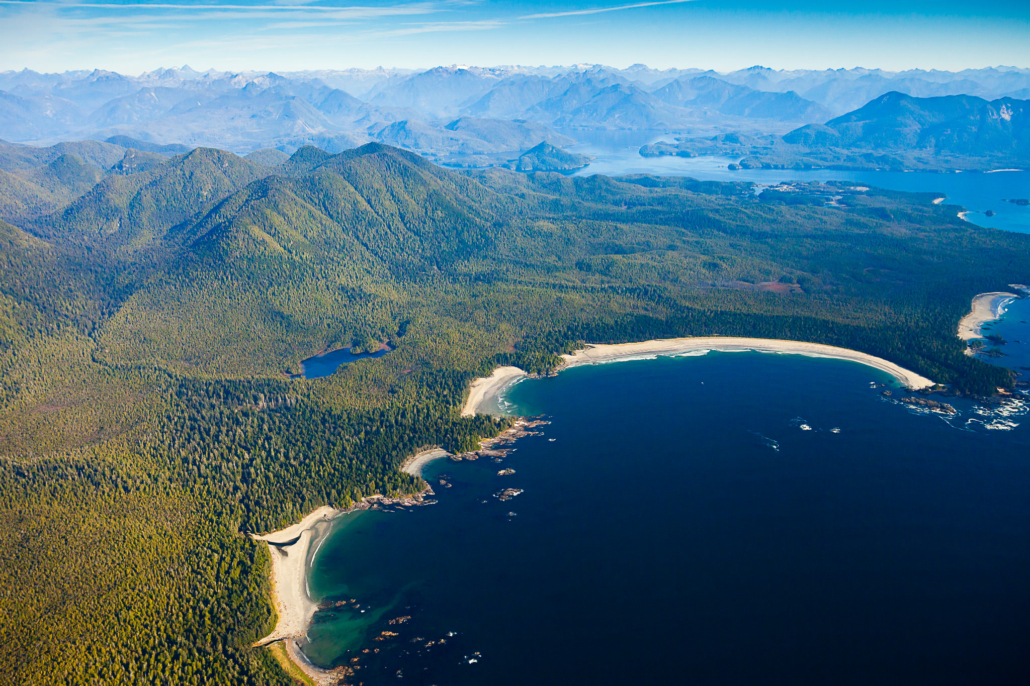 Aug 9 2023
Aug 9 2023Massive red cedar resembling rock wall discovered in Ahousaht territory
August 3, 2023
Ha-Shilth-Sa
By Karly Blats
Ahousaht, BC
It was like nothing Ahousaht’s Tyson Atleo had ever seen before.
Giving the illusion of a rock wall, a massive western red cedar tree in Ahousaht territory near Tofino in Clayoquot Sound has been named one of Canada’s most impressive trees by conservationists on Vancouver Island.
Ancient Forest Alliance (AFA) photographer and campaigner TJ Watt identified the remotely located tree on Flores Island while exploring with a friend.
The huge tree measures more than 17 feet (five metres) wide near its base, and its trunk gets even wider going upwards more than dozens of meters. According to a press release from the AFA, the tree stands 151 feet (46 metres) tall and is assumed to be well over a thousand years old given its size.
According to the AFA, the tree could have the largest or near largest timber volume of any tree in Canada for about the first 50 feet of its trunk—the part you see and experience from the ground.
“After nearly two decades of photographing, exploring and searching for big trees in old-growth forests across BC, no tree has blown me away more than this one,” said Watt in a press release. “It’s a literal wall of wood. Your brain can’t compute the scale when you stand below it. The first time I arrived, from a distance I thought it had to be two trees because of how wide the trunk and limbs are. It defies words. As an avid big tree hunter, it’s a highlight of my life to find something as spectacular as this.”
According to the BC Big Tree Registry, the tree would currently rank as the sixth largest known red cedar in the country. The registry’s largest red cedar is the Cheewhat Giant, which is located in Ditidaht territory southeast of Nitinat Lake.
The record-sized tree on Flores Island has so far garnered the nickname ‘The Wall’, or ‘ʔiiḥaq ḥumiis’, meaning ‘big red cedar’ in the Nuu-chah-nulth language. It grows on unprotected Crown/public lands in the unceded territory of the Ahousaht First Nation.
No logging plans exist for the area and the Ahousaht First Nation’s Land Use Vision, currently in the late stages of negotiations with the BC government, includes the protection of the forest where this tree is found.
“It was unlike anything I had ever seen before,” said Ahousaht First Nation Hereditary Representative Tyson Atleo. “When TJ first contacted me to go visit the tree, I was assuming it was like many I had experienced across different territories on the Island including in Ahousaht – but this one was obviously quite special. It really does look like a rock wall when you’re hiking up towards it and then you actually realize it’s a tree. It’s just breathtaking.”
Old-growth forests are culturally significant to the Ahousaht people, Atleo said, because they provide the nation with everything they need to survive, from shelter to transportation to clothing.

Aerial view over the ancient forests of Flores Island in Ahousaht territory in Clayoquot Sound, BC.
“The forest provides for every aspect of our wellbeing in addition to being home to our food sources,” Atleo said. “Everything that we need to survive is there, and not only physical survival but it’s a place representative of natural law. So it’s also our place for spirituality, for learning everything we need to know about being good humans on this planet.”
The Ahousaht First Nation’s Land Use Vision calls for the protection of 80 per cent of Ahousaht territory through the creation of new Indigenous Protected and Conserved Areas (IPCAs), encompassing most of the old-growth forests in their territory, to be legislated as Provincial Conservancies by the province.
“The 2017 Land Use Vision that we’re working on implementing builds off thousands of years of stewardship and more recently decade’s worth of efforts by some of our late leaders and current leaders,” Atleo Said. “Efforts that include stopping clear-cut harvesting in Ahousaht territories.”
Atleo said the large red cedar is currently within the boundaries of a tree farm license, and that the objective is to transition that tree farm license into new protected areas and a new forest tenure for Ahousaht.
The Ahousaht First Nation is keeping the location of the tree private at this time, but Atleo said they may take visitors there in the future.





